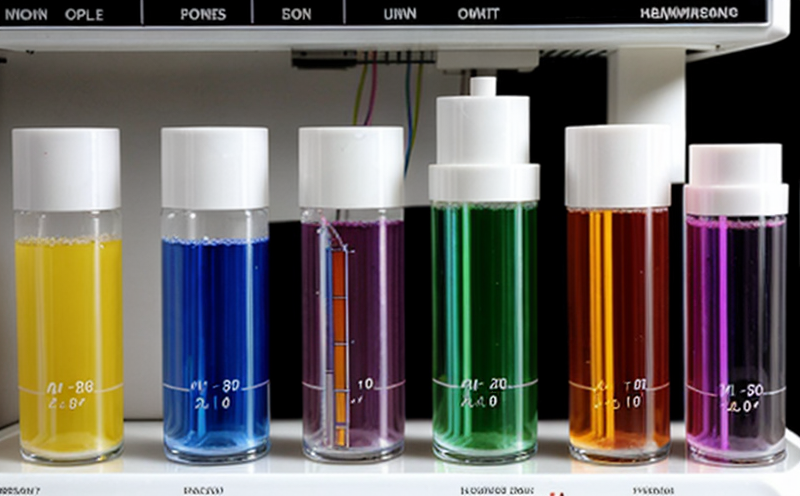CSA Z223 Fuel Testing by Chromatographic Methods
The CSA Z223 standard is widely recognized in North America as a comprehensive guide for fuel testing. This method uses chromatography to analyze the composition and quality of fuels, ensuring that they meet stringent safety and performance criteria. Chromatographic analysis, particularly through gas chromatography (GC) and liquid chromatography (LC), allows for precise separation and identification of components within complex fuel mixtures. This service is crucial for industries relying on reliable fuel performance, such as transportation, aviation, and marine sectors.
Compliance with CSA Z223 is essential to ensure that fuels meet the specified requirements regarding flash point, sulfur content, cetane number (for diesel), octane rating (for gasoline), and other critical parameters. Chromatographic analysis provides a detailed breakdown of these components, ensuring that fuel quality is consistent and meets regulatory standards.
The process begins with sample preparation, where the fuel is carefully filtered to remove any particulates or impurities. After filtering, the samples are ready for chromatographic analysis. Depending on the type of fuel being tested, different types of chromatography may be employed:
- Gas Chromatography (GC): Used primarily for volatile components such as hydrocarbons and oxygenates.
- Liquid Chromatography (LC): Suitable for non-volatile components like alcohols, esters, and other additives.
The chromatographic system separates these components based on their physical and chemical properties. The separated compounds are then detected using appropriate detectors such as flame ionization detectors (FID) or mass spectrometers (MS), which provide quantitative data about the composition of the fuel.
Once the analysis is complete, a detailed report is generated that includes:
- Component identification and quantification
- Compliance with CSA Z223 standards
- Potential issues or deviations from expected values
This service ensures not only regulatory compliance but also the reliability and performance of fuels in real-world applications. The precision offered by chromatographic methods is invaluable for R&D teams seeking to innovate fuel formulations, quality managers ensuring product consistency, and procurement officers assessing supply chain integrity.
The importance of this testing cannot be overstated, especially given the increasing demand for cleaner energy solutions. Chromatography provides a means to accurately assess the environmental impact of fuels, contributing significantly to sustainability efforts in the transportation sector. This service is an integral part of maintaining safe and efficient fuel operations across various industries.
Why It Matters
CSA Z223 fuel testing by chromatographic methods is critical for several reasons:
- Regulatory Compliance: Ensures that fuels meet the stringent requirements set forth by CSA standards.
- Safety Assurance: Identifies potential hazards in fuel composition, ensuring safe handling and use.
- Performance Optimization: Provides insights into fuel quality, allowing for adjustments to enhance performance.
- Environmental Impact Assessment: Helps in understanding the environmental footprint of fuels, supporting sustainability goals.
By adhering to CSA Z223 standards and using chromatographic analysis, industries can ensure that their fuels are safe, reliable, and environmentally responsible. This testing process is a cornerstone for maintaining high fuel quality across various sectors.
Eurolab Advantages
At Eurolab, we pride ourselves on delivering top-tier chromatographic analysis services that cater to the stringent requirements of CSA Z223. Our team of experts is dedicated to providing accurate and reliable results every time:
- State-of-the-Art Equipment: We utilize cutting-edge chromatography equipment from leading manufacturers, ensuring precision in our analyses.
- Experienced Professionals: Our analysts are highly skilled and trained in the latest techniques to ensure accurate interpretations of results.
- Comprehensive Reporting: Detailed reports that not only meet but exceed industry standards, providing actionable insights for your business.
- Dedicated Customer Support: We offer round-the-clock support to address any queries or concerns you may have about our services.
Eurolab’s commitment to excellence and customer satisfaction is reflected in our consistent high-quality results. Our expertise and advanced technology set us apart as the premier choice for CSA Z223 fuel testing by chromatographic methods.





